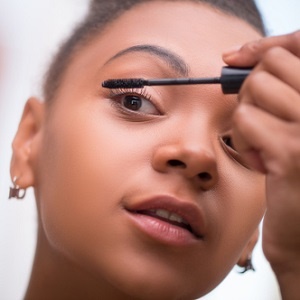
Most women wouldn’t dare face the day without a hint of Chanel, a stroke of Revlon or a touch of Bobby Brown...
Whether you’re using an eye pencil to fill in sparse brows, a trusty blush to add colour to your cheeks, or a concealer to hide the dark circles under your eyes, your choice to use make-up is often a personal one, with the brand, the quality, the shade of the product and the occasion your guides to making the final selection.
But for all their usefulness, make-up can also be harmful if it’s not used correctly. So, aside from knowing how to contour and blend, line and conceal, what else should you be aware of?
What the experts say
If a survey by Mintel, the British global marketing firm, is anything to go by, then scores of women don’t keep a check on their make-up and whether it’s safe to keep using it for a months on end.
Mintel researchers discovered that just one in four British women take note of use-by dates on their make-up and toiletries. “The rest are putting their health at risk by using old cosmetics for several years, even when they begin to smell or become discoloured,” the survey revealed.
Heather de Klerk, an Elizabeth Arden skincare expert in South Africa, agrees that using expired make-up can be risky.
“Old make-up can cause allergic reactions in the area of application,” says De Klerk, advising women to immediately stop using the product if there’s any sign of redness, rash or burning in the area of application.
Most importantly, De Klerk cautions, discard cosmetics if the colour or smell changes, and always adhere to expiration dates, which are easy to check on the labels as they’re usually stuck at the bottom of the packaging.
“You’ll see a small image of an open tub with a number and an M next to it,” explains De Klerk. “The number represents the months that the product is good to use. For example, mascaras will usually have a 6M label, which means they’re safe to use for up to six months from the date of opening the product. Lipsticks can have a shelf life of up to two years. It’s all about checking the label.”
The price of beauty
Saying goodbye to a barely used mascara may not make financial sense, but when it comes to your skin and eye health, it’s a small price to pay.
Annually, many women end up with eye infections from their cosmetics and, in rare cases, some women have even been temporarily or permanently blinded by an eye cosmetic product, according to the US Food and Drug Administration (FDA).
According to FDA experts, eyelashes naturally have bacteria on them and, as soon as you use a make-up brush on the eyelash or eyelid, the brush becomes contaminated. “Over time, the contaminated brush leads to a build-up of bacteria in the cosmetics container, increasing the chance for an eye infection or an allergic reaction with each use of the product.”
If you display an allergic reaction to make-up prior to expiration, and not just around the eye area, De Klerk says it could indicate that you have a sensitive skin condition, or sensitivity to a specific ingredient or pigment in the product.
If this happens to you, it’s best to just cut your losses and not use this product again.
“In the case of a severe allergic reaction, it may be advisable to consult a dermatologist as soon as possible, and then also to notify the store and brand where the product was purchased from,” says De Klerk.
Tips on how to use make-up safely
Allergic reactions, skin sensitivity and bacterial contamination are very real risks for anyone who uses make-up. Stay healthy and safe by following these trustworthy tips from the FDA:
- Read the product label and follow all instructions.
- Wash your hands before you use the product.
- Don’t share make-up.
- Keep the containers clean and closed tight when not in use.
- Always use a new sponge when trying products at a store. Insist that the salesperson clean container openings with alcohol before applying the product to your skin.
- Keep make-up out of the sun and heat. Light and heat can kill the preservatives that help to fight bacteria. Don’t keep cosmetics in a hot car for an extended period.
- Don’t use cosmetics if you have an eye infection, such as pinkeye or eyelash irritation.
- Discard any make-up that you were using at the time of the allergic reaction.
- Never add liquid to a product unless the label tells you to do so.
- Avoid colour additives that are not approved for use in the eye area, such as “permanent” eyelash tints and kohl (a colour additive that contains lead salts and is still used in some eye cosmetics). Be sure to keep kohl away from children as it may cause lead poisoning.
- (Hayden Horner)
Sources:
- Mintel Cosmetic Survey
http://www.mintel.com/press-centre/food-and-drink/brits-make-up-bags-are-a-sight-for-sore-eyes
- Heather De Klerk, Elizabeth Arden Skincare Expert
http://www.elizabetharden.co.za/
- FDA, Eye Cosmetic Safety
http://www.fda.gov/Cosmetics/ProductsIngredients/Products/ucm137241.htm
- FDA, Makeup Safety Tips
http://www.fda.gov/downloads/ForConsumers/ByAudience/ForWomen/UCM393860.pdf




 Publications
Publications
 Partners
Partners














